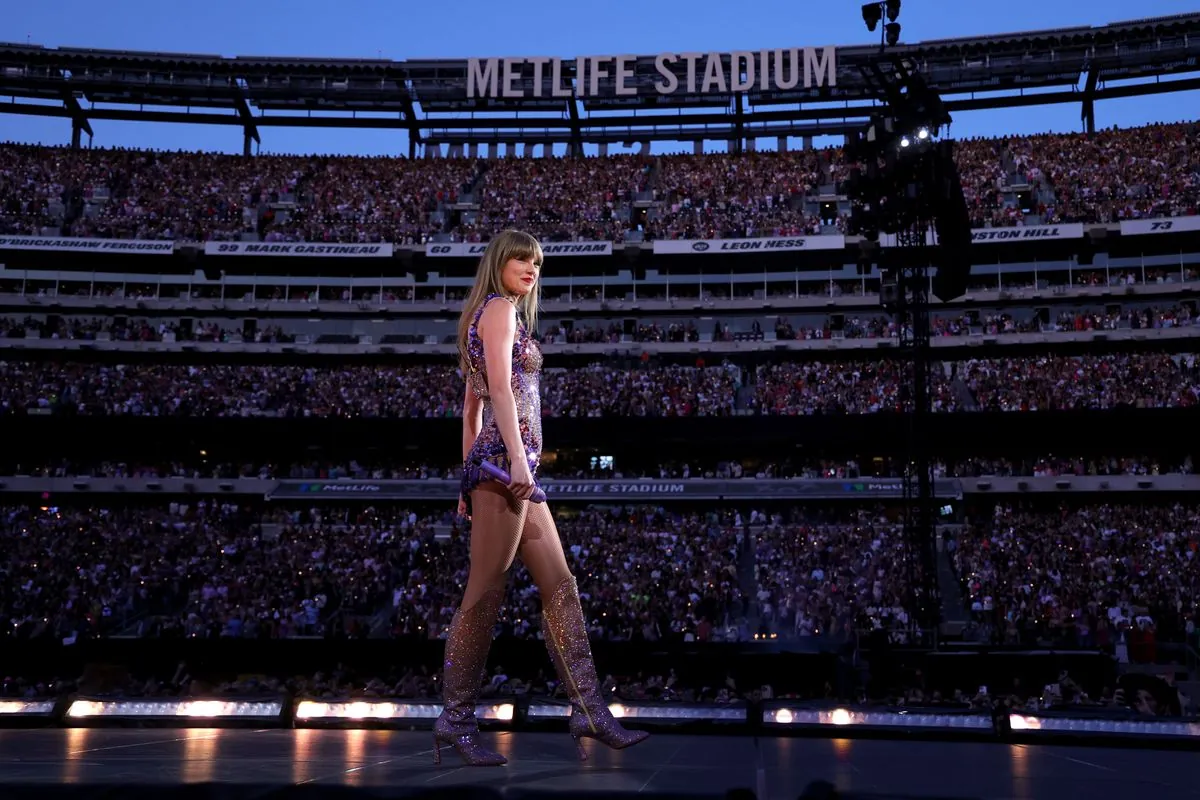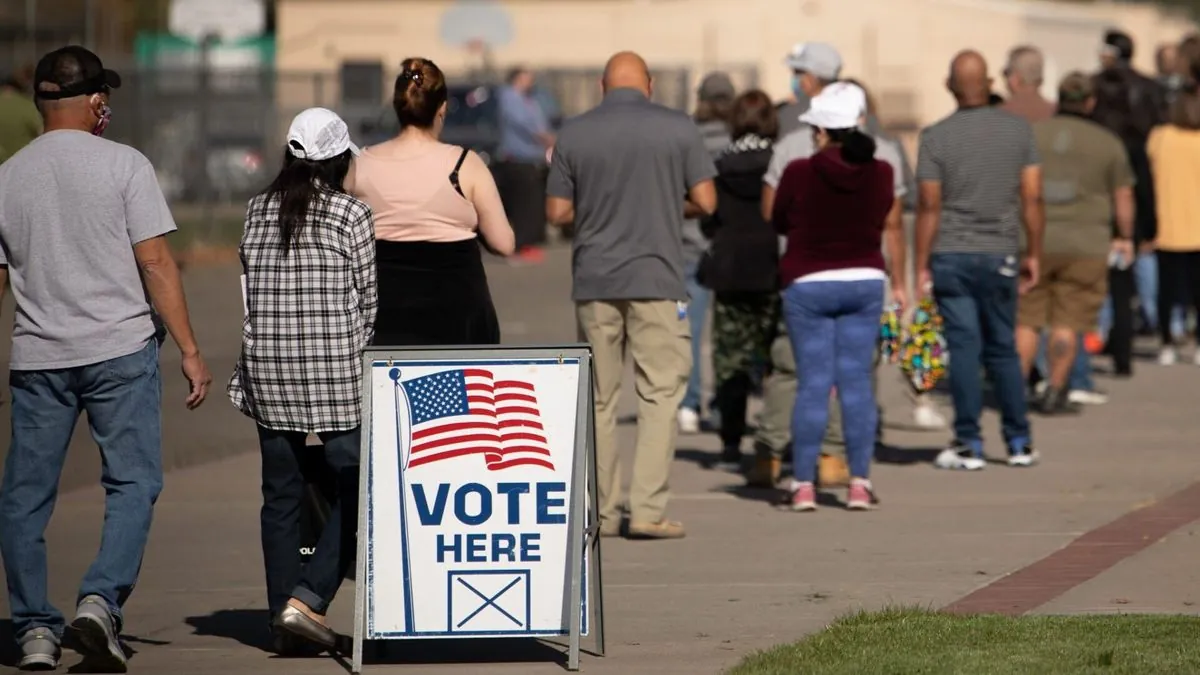Swift's Endorsement Sparks Hope for Youth Voter Surge in 2024 Election
Taylor Swift's support for Harris-Walz ticket ignites discussions on youth voting impact. Historical challenges and the 26th Amendment's legacy shape the landscape for potential record-breaking youth turnout in 2024.

In a surprising turn of events, Taylor Swift's endorsement of the Harris-Walz ticket has ignited discussions about the potential impact of youth voters in the upcoming 2024 election. The singer's Instagram post, featuring herself and her cat, has already led to a significant surge in voter registration, with over 337,000 people visiting the custom URL she shared within 24 hours.
This development comes at a crucial time, as the United States has historically struggled with low youth voter turnout. According to a study from 2020, the US ranked fifth from the bottom among 24 nations in terms of voter participation for those aged 18-29. Typically, the gap between older and younger voter turnout ranges from 20 to 30 percentage points.
"Celebrity endorsements, especially from influential figures like Swift, can potentially bridge the engagement gap and motivate young people to participate in the democratic process."
The importance of the youth vote cannot be overstated, particularly in an election where margins could prove decisive. The 2020 presidential election saw a notable increase in youth voter turnout, with 50% of Americans aged 18-29 casting their ballots – an 11-point increase from 2016.

The current focus on youth voting rights harkens back to the ratification of the 26th Amendment in 1971, which lowered the voting age to 18. This amendment, ratified in a record-breaking 100 days, was the result of decades of activism and debate. Prior to its passage, most states set the voting age at 21, with Georgia being a notable exception since 1943.
The push for lowering the voting age gained momentum during the turbulent 1960s, fueled by the civil rights movement and opposition to the Vietnam War. Organizations like the Students for a Democratic Society (SDS) played a crucial role in advocating for youth political participation. The movement reached a turning point on March 7, 1965 – now known as "Bloody Sunday" – when law enforcement violently suppressed voting rights protesters in Selma, Alabama.
Despite the amendment's passage, youth voter turnout has remained a challenge. Various factors contribute to this issue, including:
- Lack of prioritization by political parties
- Structural barriers, such as difficulty taking time off work or school
- Alternative forms of political engagement, like social movements
- The need for time to develop voting habits
Both major political parties have recognized the importance of engaging young voters. In 1972, despite expectations favoring Democratic candidate George McGovern, President Richard Nixon managed to secure nearly half of the first-time youth vote through targeted outreach efforts led by 30-year-old Ken Reitz.
Recent efforts to increase voter participation include the motor voter law of 1993 and liberalized absentee voting rules implemented during the COVID-19 pandemic. However, the US still lags behind many other countries, where voting rates can reach 80-90%.
As the 2024 election approaches, the impact of celebrity endorsements and social media engagement on youth voter turnout remains to be seen. With Kamala Harris and Tim Walz gaining momentum, and figures like Taylor Swift lending their support, there is potential for a significant shift in youth political participation.
The legacy of the 26th Amendment continues to shape the political landscape, reminding us of the ongoing struggle to ensure full democratic participation across all age groups. As we move forward, addressing structural barriers and fostering a culture of civic engagement will be crucial in realizing the amendment's full potential and strengthening American democracy.


































